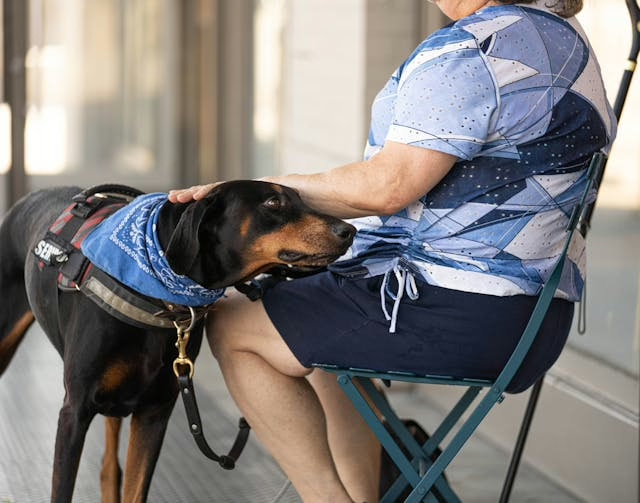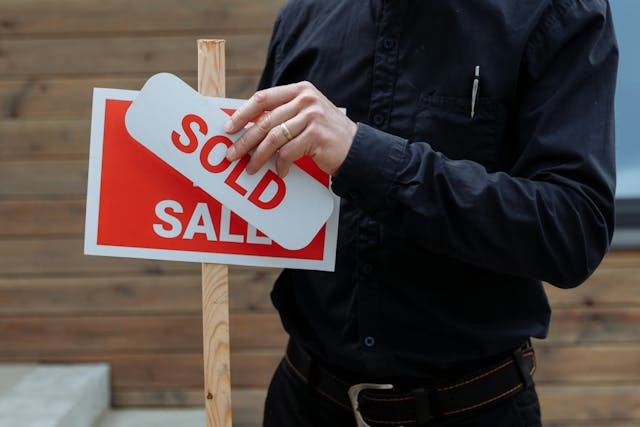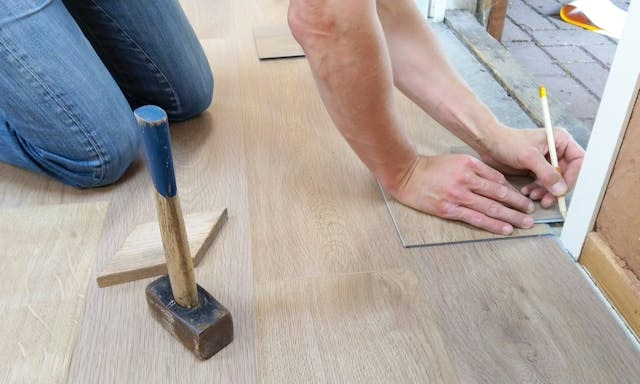Key Takeaways
- South Carolina landlords have flexibility in setting and managing security deposits, as the state does not cap deposit amounts or impose specific holding requirements.
- Deductions from a security deposit are allowed for unpaid rent, lease violations, and damages beyond normal wear and tear, but charges must remain reasonable.
- Landlords must return the tenant’s security deposit within 30 days after move-out, and must transfer the deposit (with notice) when selling a rental property.
As a South Carolina landlord, you know the importance of renting to high-quality tenants. After all, high-quality tenants take care of the rented property, punctually pay rent, and renew their lease multiple times.
That said, despite striving to find such tenants, you may still end up having to deal with a potential situation where having a security deposit can come to the rescue!
The following blog by Blue Bridge Management provides a run down of South Carolina security deposit laws you should familiarize yourself with.
Part or all of the tenant’s security deposit could be used to cover the due rent.
A tenant’s security deposit is meant to cushion a landlord against possible financial damage that can arise during a tenancy. The following are common examples of such situations:
- If a tenant leaves without paying all rent due under the rental agreement.
- Cost of fixing damages exceeding normal wear and tear.
- The cost of cleaning the property professionally if the tenant leaves in a state that requires extensive cleaning.
- Repairs that arise due to a tenant’s negligence. For instance, if water damage occurs to the property due to a leaking pipe that they failed to report.
- A financial loss resulting from a lease violation. For example, if the tenant breaks their lease early without a legal justification, you may be justified in using part of their deposit to cover the costs of re-renting the unit.

With that in mind, in adherence with state landlord-tenant laws in South Carolina, landlords who keep their tenants’ security deposits must abide by the state’s security deposit laws. These dictate what a landlord can and cannot do when holding their tenant’s security deposit.
What Is the Maximum Amount a Landlord Can Ask for a Security Deposit in South Carolina?
Although some states have rules that impose limits on the amount landlords can ask for their security deposits, this is not the case for landlords in South Carolina. You are free to set an amount for a security deposit as you see fit.
Please note, however, that it may not be worthwhile to overcharge tenants. Asking for a security deposit that’s, for instance, 4-5 times the monthly rent amount would be counterproductive.
Generally, most landlords require their tenants to pay a security deposit that’s about double the monthly rent. This is not only a reasonable amount, but can also help cover any potential financial issues.
Can Landlords in South Carolina Ask for Additional Pet Deposits?
Since there is no cap on the security deposit landlords can ask tenants in South Carolina, you may also ask for additional pet deposits. Again, ensure to keep the amount reasonable to maintain your unit’s desirability among tenants.
Please note, however, that you must exempt disabled tenants from paying any extra fees since “disability” is a protected class under the South Carolina fair housing laws.

Similarly, Section 37.3 of the Americans with Disability Act (ADA) defines a service animal as a working animal. Consequently, landlords must not ask their owners to pay any extra fees for having them.
Are There Any Additional Requirements for Landlords Who Collect Security Deposits From Tenants in South Carolina?
Landlords in South Carolina must provide tenants with a receipt for their security deposit.
Landlords requiring different amounts of security deposits for at least 5 adjacent units must provide the tenants of the said units with a disclosure of the formula used. This may be separate or included in the lease agreement.
Is There a Requirement for Holding Tenants’ Security Deposits in South Carolina?
Some states require landlords to hold their tenants’ security deposits in a particular way. This may be the case when it comes to interest-earning accounts, separate accounts, federally accredited banking institutions, or even to post them as bonds.
In South Carolina, landlords must keep security deposits in a separate account.
What Happens to a Tenant’s Security Deposit After a Landlord Sells Their Rental Property?
After selling an occupied rental property in South Carolina, the outgoing landlord is required to follow certain steps. First, you must transfer the deposit, less any allowable deductions, to the incoming landlord.

After the transfer, you must notify the tenant of the sale and transfer. The notice must be in writing.
Once you have met these conditions, the incoming landlord will then be responsible for keeping the tenant’s deposit per the state’s security deposit laws.
What Sort of Deductions Can a Landlord Make From a Tenant’s Security Deposit?
There are certain deductions that you may be able to make from a tenant’s security deposit after they move out. The following are some examples of allowable deductions:
- Unpaid rent
- Cost of repairing damage beyond normal wear and tear
- Cost of fixing financial damage arising from a lease violation
Although, there are no legal limits to the amount of deductions you can make for damages, charges must still be considered reasonable.
When it comes to making deductions due to damages, it’s important to differentiate between normal wear and tear and excessive damage to prevent potential conflicts.
Examples of normal wear and tear include lightly dirtied grout, stained bath fixtures, and mildly worn carpets. These types of damages arise from normal use of a rental property by a tenant. As a landlord, it’s your responsibility to fix them after the tenant leaves.

However, repairing damages that exceed normal wear and tear is the tenant’s responsibility. Common examples include missing fixtures, broken tiles, holes in the wall, or heavily stained carpets.
When Must a Tenant’s Security Deposit Be Returned in South Carolina?
After a tenant leaves, South Carolina landlords must return their tenant’s security deposit within 30 days, along with an itemized list of any deductions.
Conclusion
Now you know what rights and duties you have when handling your tenant’s security deposit in South Carolina. Please note, just like with other South Carolina state-landlord tenant laws, violations can have serious repercussions.
For expert help in any or all aspects of landlording in South Carolina, Blue Bridge Management has your back. We can help make the management of your Greenville property stress-free. Get in touch to learn more!
Disclaimer: Please note that the information provided in this blog is intended for general guidance and should not be considered as a replacement for professional legal advice. It is important to be aware that laws pertaining to property management may change, rendering this information outdated by the time you read it.
